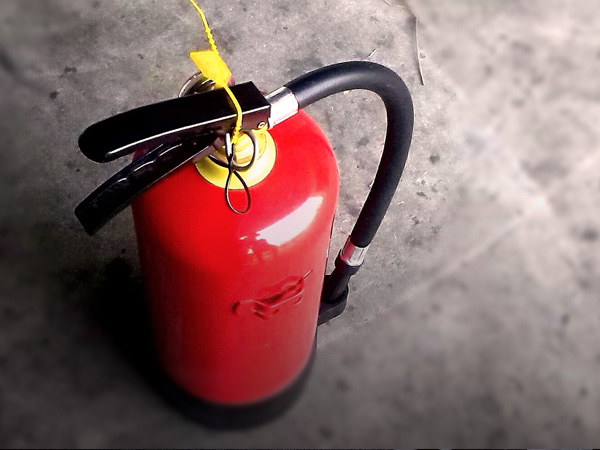Severe weather: For urgent assistance call 0800 800 134.
Submit your claim online here. General FAQ's at Wild Weather Hub.
Vero Voice Blog
Spontaneous Ignition – the hidden danger when doing laundry
Manager, Customer Risk Solutions
6 December 2018
Vero received a claim for a fire that caused extensive damage to a small business. Upon investigation, we discovered that the cause of the fire was the spontaneous ignition of towels, rags and napkins in the tumble dryer.
After being washed, the linen was dried in the tumble dryer and left overnight. In the early hours of the following morning the towels, rags and napkins spontaneously ignited.
It might surprise businesses to know that fires caused by spontaneous ignition involving laundry are relatively common.
It’s possible for fires to start by spontaneous ignition in any business that does laundry, which can range from day cares, creches, beauty salons and massage parlours to cafes, restaurants, hospitals and aged care facilities – and of course, commercial and self-service laundries.
But there are a few simple steps you can take to reduce the risk of spontaneous ignition causing a fire that could damage your premises and put a halt to your trading for an extended period of time.
What causes spontaneous ignition?
Spontaneous ignition is caused by a chemical process called oxidation which occurs when a substance combines with oxygen. Oxidation creates heat, and if the heat can’t be removed (for example, by air flow) the temperature of the substance continues to increase until it reaches its ignition temperature and catches fire.
Oxidation can occur naturally among warm or damp fabrics during the laundering process. There are a few common factors that can increase the chance of spontaneous ignition.
- Cotton fabrics that are coated or contaminated with vegetable oils, including cleaning rags, dish cloths, towels and aprons
- Warm or damp linen being stored in a warm area
- Exposure to heat sources like hot pipes or tumble dryers
- Lack of ventilation for compressed or folded laundry
- Exposure to direct sunlight
- Detergents that contain oxidising chemicals
Tips for businesses to prevent spontaneous ignition
The fire risk associated with laundry operations can be reduced if businesses follow a few simple precautions to reduce the chance of spontaneous ignition.
Wash soiled items on the right setting
Cold water washes don’t always remove all the oils, fats or detergent from aprons, tea towels and dishrags. Adjust your wash temperatures and detergent for the optimum removal of any oil and fat contamination, and rinse your laundry before drying.
Maintain equipment correctly
Laundry equipment on your premises should be installed, maintained and operated as recommended by the manufacturer. It’s a good idea to regularly check any thermostat controls and clean and check lint filters daily.
Ensure air exhaust pipes are free of obstruction
Lack of ventilation increases the risk of spontaneous ignition, so ensure that tumble dryer air exhaust vents are free of any obstruction or blockage.
Keep soiled laundry away from heat sources
Don’t store soiled laundry near heat sources like tumble dryers or in direct sunlight. It’s also a good idea to wash things as soon as possible.
Line dry high risk items
Foam rubber, waterproof textiles, plastic shower caps, rubber backed items or clothes, mop heads and anything that has been contaminated with vegetable oils should ideally be line dried – because the temperature of a dryer may cause these items to ignite.
Only tumble dry while someone is on the premises
If possible, it’s best to only tumble dry laundry while someone is present, and will have time to empty the dryer as soon as it’s finished, and cool and store the laundry. Leaving dryers or hot laundry unattended means that if a fire does start, it might be some time before you catch it.
Let items cool down
Ensure that when you are using a dryer, you don’t skip the cool-down part of its cycle. Once the dryer is finished, it’s best to empty it immediately and spread out the laundry into small piles to allow it to air out and cool. Dry laundry left in a plastic container or cart will retain heat, so metal open mesh baskets are a good alternative.
What if a fire does start?
Where there is a risk of spontaneous ignition, you should make sure you have a fire extinguisher on hand. It’s useful to get specialist advice on the size, number and location of fire extinguishers a business needs, but dry powder fire extinguishers with the appropriate rating should be the minimum.
The information in this article has been compiled from various sources and is intended to be factual information only. Full details of policy terms and conditions are available from Vero Insurance New Zealand Limited or your financial adviser. For advice on product suitability, please contact your financial adviser. While we take reasonable steps to ensure that the information contained in this article is accurate and up-to-date, it is subject to change without notice. Vero Insurance New Zealand and its related companies does/do not accept any responsibility or liability in connection with your use of or reliance on this article.
Keep reading

Vero Voice Blog
5 big reasons to use a broker (according to small businesses)
Insurance customers are increasingly getting a lot more choice about where and how to purchase their insurance, and that’s a great thing. But with more choice comes more decisions, not just about what insurance you need but also how to arrange it.
Read blog

Vero Voice Blog
Businesses could do more to protect themselves against fire damage
Every year, Vero’s risk management specialists visit around 3000 commercial premises to help them find ways to protect themselves against loss. One of the big opportunities we often identify is that many businesses could do more to better protect themselves against fire.
Read blog

